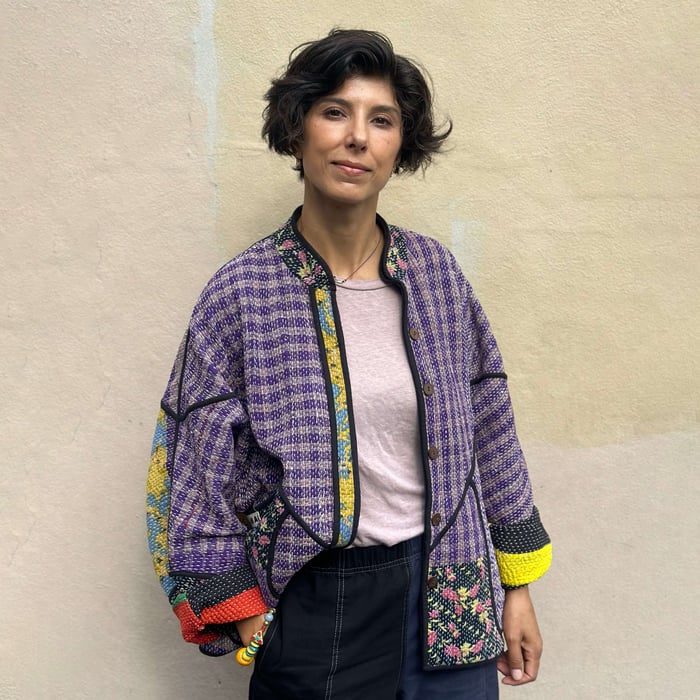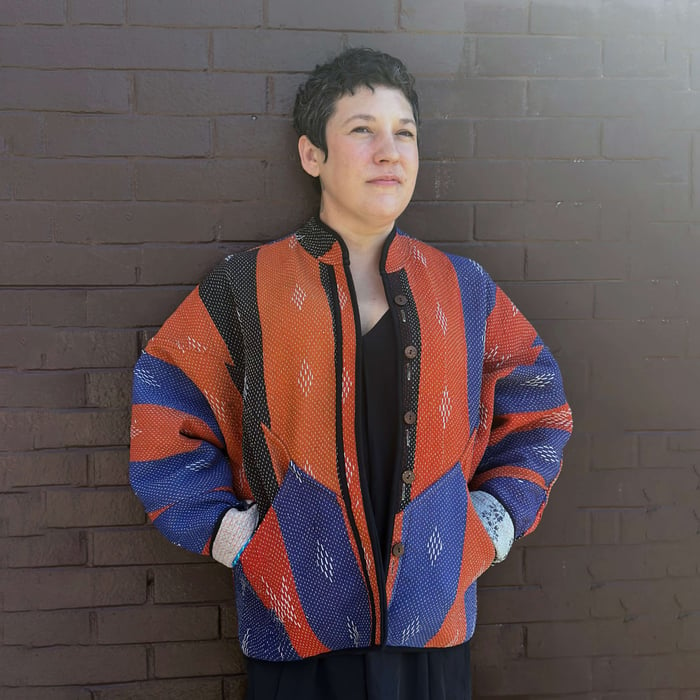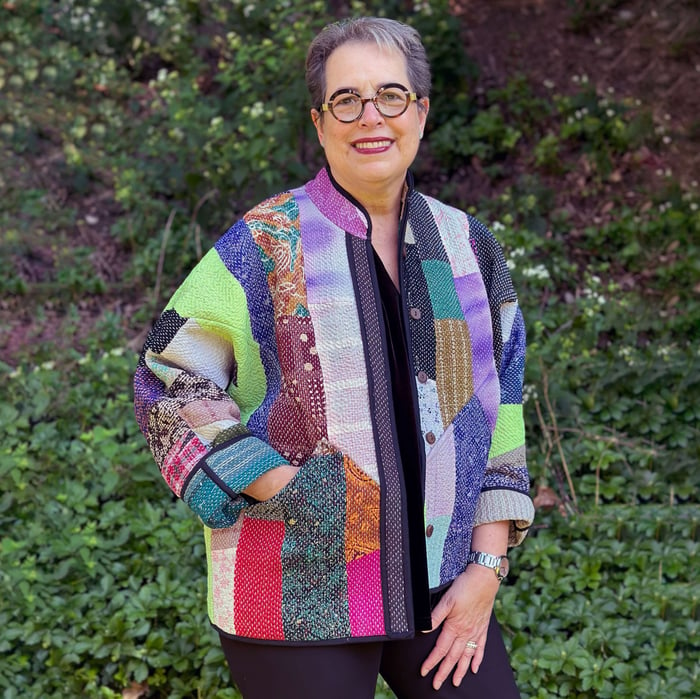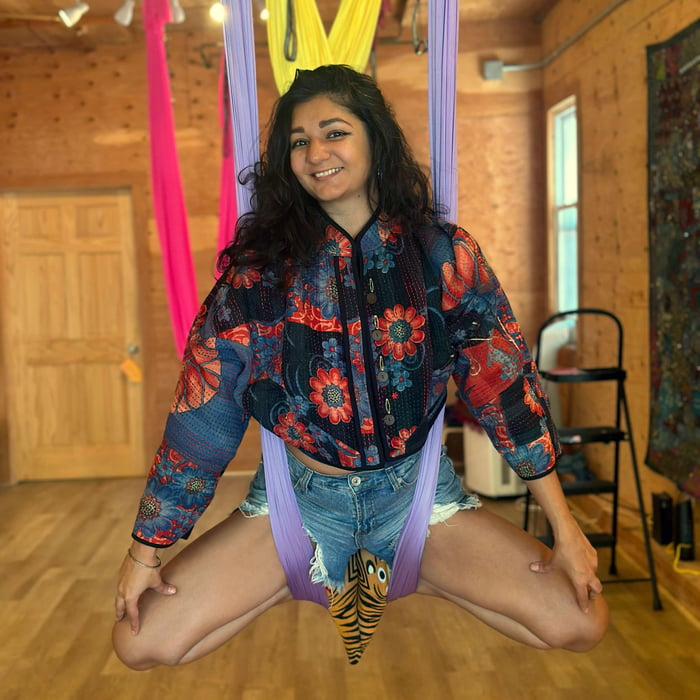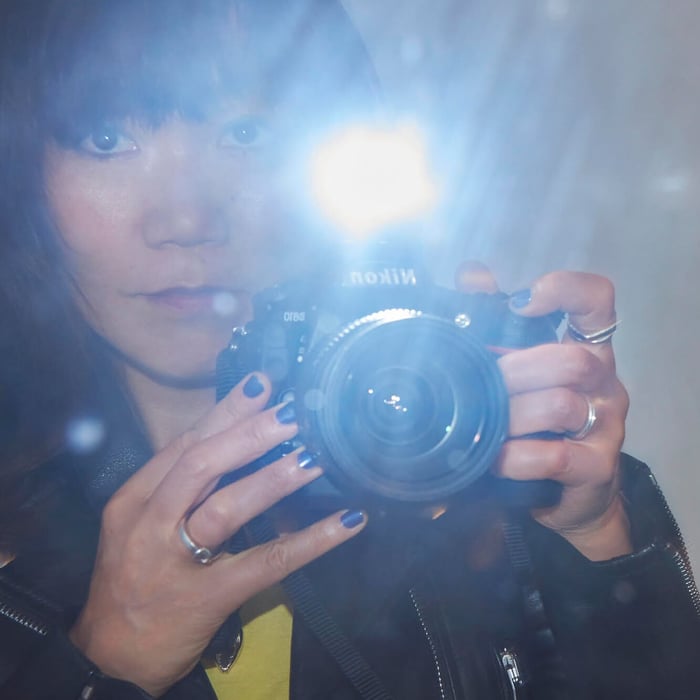October is Breast Cancer Awareness Month, and as part of what I’m calling The October Project, I’ll be sharing the stories of a group of creative, interesting, and dynamic women who’ve been through breast cancer, in our Journal. I’m starting the month off with my story.
This project isn’t to raise money for pharmaceutical companies, or push pink products. I’m not a “warrior”, or “fighter”, I just did what I needed to do, and now I’m saying - I’m here, and if you’re going through breast cancer, or have been, or have a friend or family member going through it, I see you. Here's my story, follow along for more stories in the Journal throughout the month, and email me via the contact us page with any feedback, comments or questions.
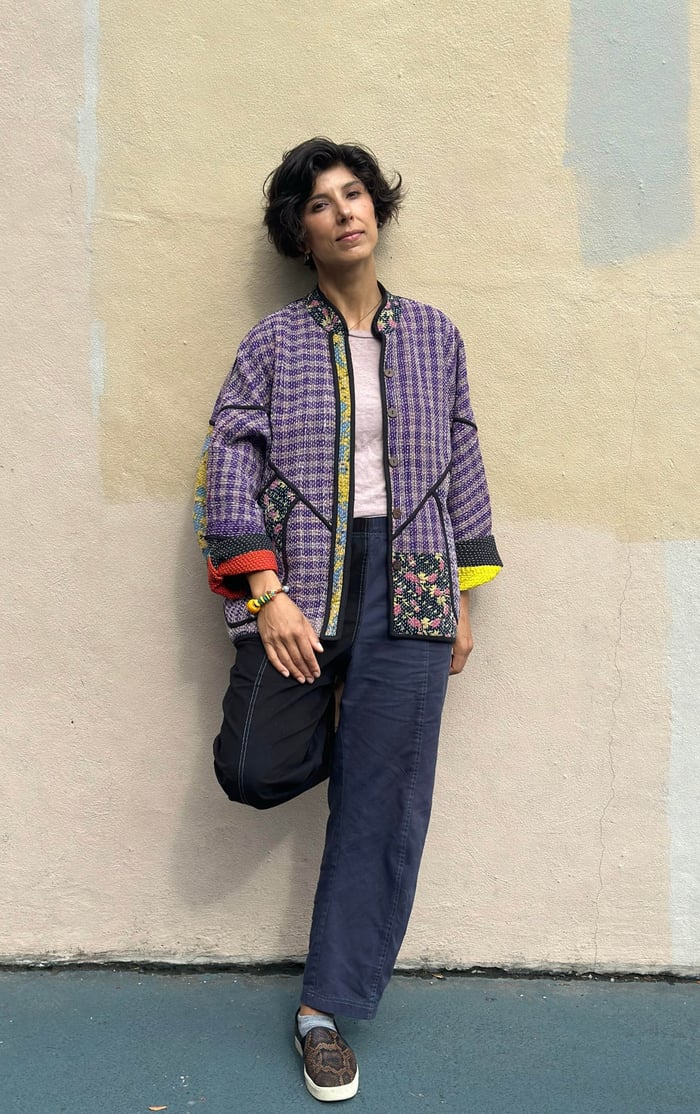
Can you describe how your diagnosis came about?
I've been doing routine mammograms since I turned forty, and at the end of 2022 they asked me to come back for an ultrasound. After that, a biopsy, and on May 31st 2023 at age forty four I was diagnosed with triple positive stage 1 breast cancer. It was right after a big market, Field and Supply, so I was exhausted from that, and it felt very surreal. I felt like my life was at such an exciting stage, with my business gaining traction, and I was feeling more fulfilled in my relationships, life and work than ever before. Physically I felt healthy and strong and was working out and lifting weights, so the diagnosis was a complete shock.
How did it feel for you?
For weeks after finding out I kept thinking, maybe it’s not really happening to me? At the same time it was really scary, I had just quit my full-time job to focus on Namai. I didn’t have health insurance, and had no idea how I was going to manage to run a business whilst undergoing treatment. I was putting myself under a lot of pressure to work less, eat super clean, and not be as stressed. I felt really angry for the first two months, because I'd always associated cancer as being this kind of metaphorical wake-up call, but I’d done all the things I wanted to do, like spend more time in nature, quit a job that made me unhappy, and focus on creativity. And I still got cancer! I was the first amongst all of my friends and friends of friends, so it felt really alienating, like I was a pioneer in this area that I really didn't want to be. Even though breast cancer has a high survival rate, it was scary facing the idea of having something that could potentially be fatal. I definitely delved into the dark side of things and spent a lot of time doom scrolling and feeling sorry for myself. I was lucky to have an incredibly supportive and giving partner, Josh, and friends who were really there for me, but the first months weren’t easy. I’m not exactly sure when that changed, but at a certain point I did start to take the treatment in my stride, and some of the anger and resentment got replaced with a strong sense of self-love and pride in my inner strength.
Did you share your diagnosis on social media?
I felt relatively new to social media when I was diagnosed, and since I barely knew how to navigate the situation myself, I didn’t feel ready to share it on Instagram. I knew that eventually I would, but wanted to wait until I was finished treatment before coming out with the news. I didn’t want to be falsely positive when I didn't feel it.
What was your treatment?
I was treated at Columbia in NYC. I underwent surgery for a lumpectomy, followed by six weeks of radiation, and seventeen rounds of Kadcyla (immunotherapy targeted chemo). I am happy with the care and ongoing follow up I received with my amazing doctors and nurses there.
How has your attitude to your work changed since diagnosis and treatment?
When I first got diagnosed, I was working all hours of the day on my business. I knew that had to stop, as I had surgery and chemo on the horizon and I had no idea how it would affect me and what my recovery time would be. At the time, it was just me working in my living room in Queens. I very quickly realized I needed to structure the business in a way that it could function without me, given that my medical treatment took up so much of my time. Over the next few months I was fortunate to be able to build a small team: Alanah who manages the office and Zosia who manages quality control and repairs. They have been fundamental in the growth of the business and the ability for us to stay afloat. The urgent need for structure early on is something that ultimately has helped propel Namai to grow quickly, and I’m grateful for that.
Did you use clothing to make you feel a certain way?
Yes, and it was fundamentally important to me. Wearing my jackets made me feel comforted and protected, and I sometimes wore them over my gown, especially while doing radiation. I wore a lot of color, it helped me to feel happy and relaxed. I also really liked loose soft clothing and fun shoes. When I first started going to appointments, it really stood out to me that I was almost always the youngest person in the room. I was self-conscious about it, and sometimes I wondered why I was attracting additional attention by wearing really bright colors, but the colors helped me feel like myself.
How did breast cancer affect ideas of friendship and community for you?
I've always been a really private person, and when I first got diagnosed a big part of me wanted to hide and then come out when it was over. I had an unconventional upbringing. And although it sounds strange saying out loud, getting diagnosed with breast cancer was painful because it felt like another thing that made me different from other people, and set me apart, and was something to feel ashamed about. I know that as part of my healing process, I needed to push through that, so I started telling close friends, family, and then acquaintances. Telling people was hard, but as I started telling people, it started having a profound effect on me and my friendships. I felt like I gained this super power of being vulnerable, and brought me closer to people. As I told people my story, I heard so many stories from other people, not just of cancer, but other health issues, and it gave me such a sense of perspective, and a value for the things we’ve been through collectively as human beings.
Was there something that gave you comfort during treatment? Knitting! There are so many hours spent waiting in doctors’ offices during active treatment, and knitting was a really positive way to turn those “wasted” hours into something concrete and real. On days when I had a chemo treatment I’d be in hospital most of the day going from appointment to appointment, and I knitted a super long scarf, a cowl, and nearly finished a second scarf, a hat, and a neck warmer. I feel like that time got transformed into all these beautiful things that I will hopefully have for a long time to come. It also helped me connect with other patients and nurses, who’d comment on my knitting progress and the colors.
What is your relationship to the idea of growth throughout an experience like this? I think women put themselves under so much pressure to be perfect. The perfect wife, mom, co-worker, and now cancer patient. That's not something I would ever want to be. For me, healing was about accepting that this thing came from inside of me, and loving it and myself anyway. I’m very cautious to characterize the positive changes I've experienced as a silver lining. I don’t think it's necessary to go through something really painful in order to evolve as a human being. Having said that, I have changed, and I like myself more. I’m much more aware of my power and strength, more capable of being vulnerable, and able to love myself. If I had the magical ability to turn back the clock on this roller coaster, I wouldn’t change a thing.
Edited by Mitra Bonshahi and Susan Lee. Photographs by Josh Werner.

